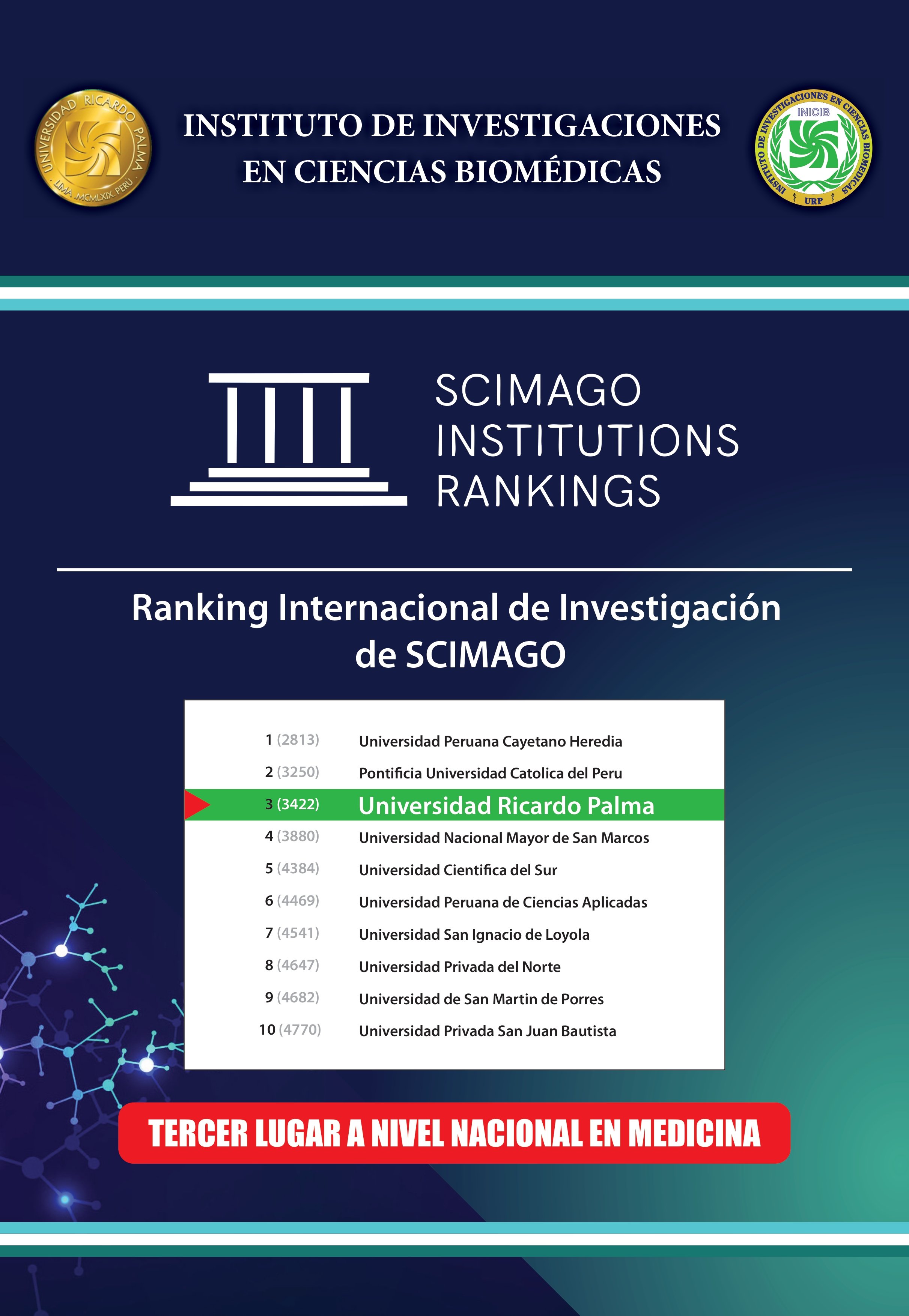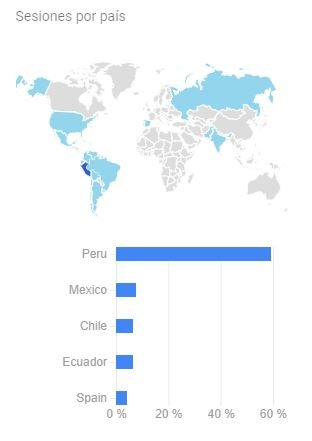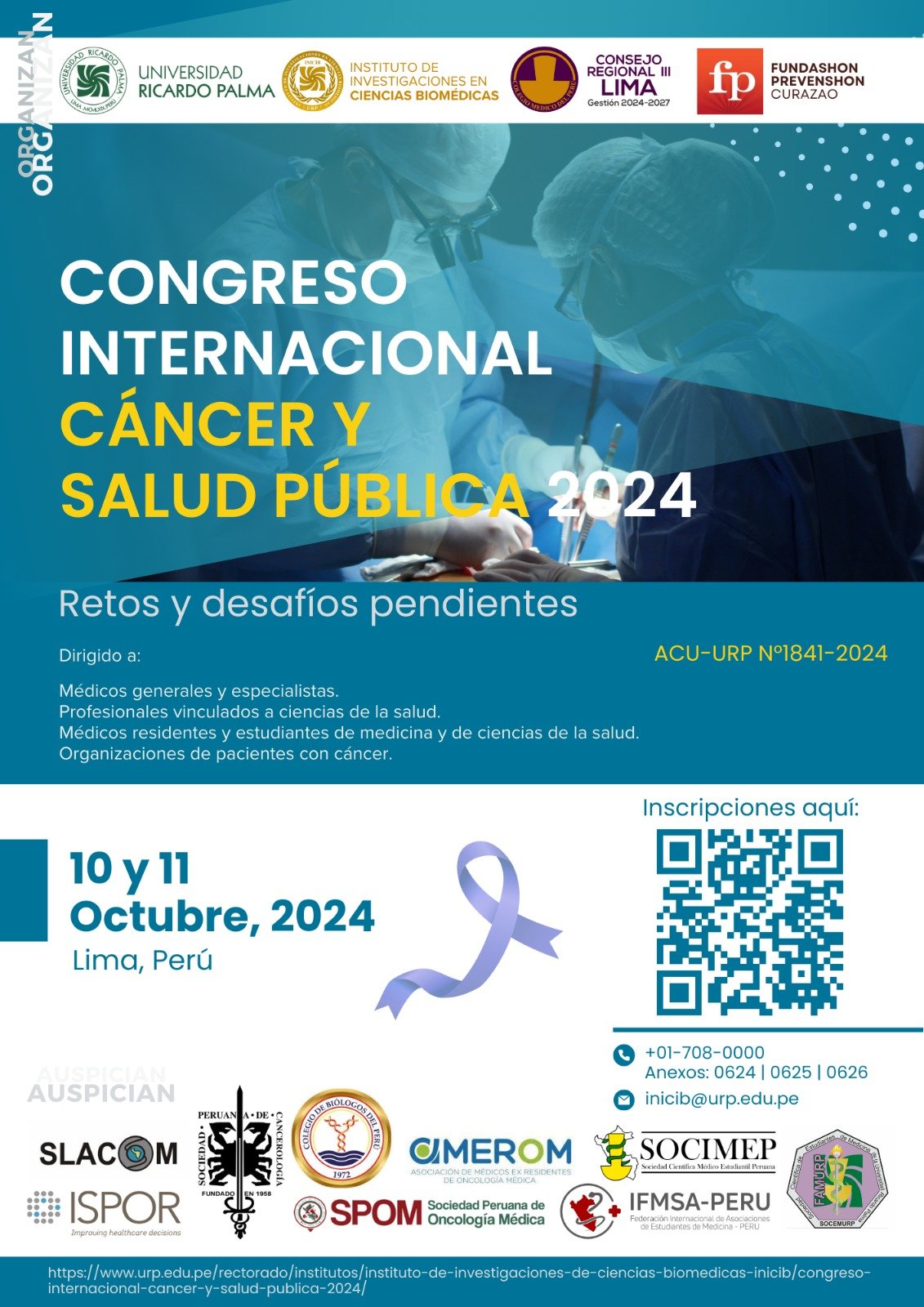Caracterización de la dieta en los perfiles bioquímicos y antropométricos con análisis de componentes principales en pacientes obesos, Guayaquil – Ecuador
Characterization of diet in Biochemical and anthropometric profiles whit the analysis of main components in obese patients, Guayaquil – Ecuador
DOI:
https://doi.org/10.25176/RFMH.v23i3.5572Palabras clave:
Dieta, antropometría, biomarcadores, obesidadResumen
Objetivos: Determinar la caracterización de la dieta en los perfiles bioquímicos y antropométricos con análisis de componentes principales en pacientes obesos ecuatorianos. Métodos: Estudio descriptivo, comparativo, longitudinal, se tuvo acceso a la base de datos de la historia clínica institucional y se conformó un grupo de estudio al que se les ofreció una dieta baja en carbohidratos. La muestra fueron 110 pacientes obesos del Hospital de Guayaquil-Ecuador. Resultados: Los pacientes tenían edades entre 25 a 65 años. Se obtuvo un efecto significativo de pérdida de IMC (kg/m2) (Δ-2,6±1,9) (p<0,001), perímetro abdominal (cm) (Δ-5,1±4,7) (p<0,001), grasa corporal (%) (Δ-3,6±3,6) (p<0,001), triglicéridos (mg/dL) (Δ-25,4±72,9) (p<0,001) y glucosa (mg/dL) (Δ-6,8±9,6) (p<0,001). Conclusión: La dieta baja en carbohidratos reduce el IMC, el perímetro abdominal, la grasa corporal, triglicéridos y glucosa en los pacientes obesos.
Descargas
Citas
OMS. INFORME-STEPS. 2018. Disponible en: https://www.salud.gob.ec/wp-content/uploads/2020/10/INFORME-STEPS.pdf
PAHO. Prevención y control de las enfermedades no transmisibles. 2017. Disponible en: https://www.paho.org/es/temas/enfermedades-no-transmisibles
James WP. Obesity—a modern pandemic: the burden of disease. Endocrinol Nutr. 2013;60 Suppl 1:3-6. doi:10.1016/s1575-0922(13)70015-94.
Bray GA, Kim KK, Wilding JPH; World Obesity Federation. Obesity: a chronic relapsing progressive disease process. A position statement of the World Obesity Federation. Obes Rev. 2017;18(7):715-723. doi:10.1111/obr.12551
Sackner-Bernstein J, Kanter D, Kaul S. Dietary Intervention for Overweight and Obese Adults: Comparison of Low-Carbohydrate and Low-Fat Diets. A Meta-Analysis. PLoS One. 2015;10(10): e0139817. Published 2015 Oct 20. doi: 10.1371/journal.pone.0139817
Santos FL, Esteves SS, da Costa Pereira A, Yancy WS Jr, Nunes JP. Systematic review and meta-analysis of clinical trials of the effects of low carbohydrate diets on cardiovascular risk factors. Obes Rev. 2012;13(11):1048-1066. doi:10.1111/j.1467-789X.2012. 01021.x
Buyken AE, Goletzke J, Joslowski G, et al. Association between carbohydrate quality and inflammatory markers: systematic review of observational and interventional studies. Am J Clin Nutr. 2014;99(4):813-833. doi:10.3945/ajcn.113.074252
Weigle DS, Breen PA, Matthys CC, et al. A high-protein diet induces sustained reductions in appetite, ad libitum caloric intake, and body weight despite compensatory changes in diurnal plasma leptin and ghrelin concentrations. Am J Clin Nutr. 2005;82(1):41-48. doi:10.1093/ajcn.82.1.41
Fechner E, Bilet L, Peters HPF, et al. Effects of a whole diet approach on metabolic flexibility, insulin sensitivity and postprandial glucose responses in overweight and obese adults - A randomized controlled trial. Clin Nutr. 2020;39(9):2734-2742. doi: 10.1016/j.clnu.2019.12.010
Churuangsuk C, Kherouf M, Combet E, Lean M. Low-carbohydrate diets for overweight and obesity: a systematic review of the systematic reviews. Obes Rev. 2018;19(12):1700-1718. doi:10.1111/obr.12744
Alberti KG, Zimmet P, Shaw J; IDF Epidemiology Task Force Consensus Group. The metabolic syndrome--a new worldwide definition. Lancet. 2005;366(9491):1059-1062. doi:10.1016/S0140-6736(05)67402-8
Noakes TD, Windt J. Evidence that supports the prescription of low-carbohydrate high-fat diets: a narrative review. Br J Sports Med. 2017;51(2):133-139. doi:10.1136/bjsports-2016-096491
Deurenberg P, Weststrate JA, Seidell JC. Body mass index as a measure of body fatness: age- and sex-specific prediction formulas. Br J Nutr. 1991;65(2):105-114. doi:10.1079/bjn19910073
Lê, S., Josse, J., & Husson, F. (2008). FactoMineR: An R Package for Multivariate Analysis. Journal of Statistical Software, 25(1), 1-18. https://doi.org/10.18637/jss.v025.i01
Goldenberg JZ, Day A, Brinkworth GD, Sato J, Yamada S, Jönsson T, Beardsley J, Johnson JA, Thabane L, Johnston BC. Efficacy and safety of low and very low carbohydrate diets for type 2 diabetes remission: systematic review and meta-analysis of published and unpublished randomized trial data. BMJ. 2021;372:m4743. doi: 10.1136/bmj.m4743.
Barber TM, Hanson P, Kabisch S, Pfeiffer AFH, Weickert MO. The Low-Carbohydrate Diet: Short-Term Metabolic Efficacy Versus Longer-Term Limitations. Nutrients. 2021 ;13(4):1187. doi: 10.3390/nu13041187.
Feinman RD, Pogozelski WK, Astrup A, et al. La restricción de carbohidratos en la dieta como primer enfoque en el manejo de la diabetes: revisión crítica y base de evidencia. Nutrición 2015; 31: 1-13. 10.1016 / j.nut.2014.06.011
Gordillo-Cortaza JDR, Pozo-Verdesoto SD, Sanclemente-Lainez GK, Viteri-Gómez GR, Gómez-Rutti YY, Feraud-Ibarra FV, Vásquez- Rodríguez NA, González-García WA, Poveda-Navarrete S. Efecto de fluoxetina y dieta baja en carbohidratos en marcadores de riesgo cardiometabólico en sujetos con riesgo de diabetes mellitus. RevistaUG; 2021;132(1):10-2. Disponible en: https://revistas.ug.edu.ec/index.php/rug/article/view/1352
Micanti F, Iasevoli F, Cucciniello C, Costabile R, Loiarro G, Pecoraro G, et al. The relationship between emotional regulation and eating behaviour: a multidimensional analysis of obesity psychopathology. Eat Weight Disord EWD. marzo de 2017;22(1):105-15.
Canhada SL, Luft VC, Giatti L, Duncan BB, Chor D, Fonseca M de JM da, et al. Ultra-processed foods, incident overweight and obesity, and longitudinal changes in weight and waist circumference: the Brazilian Longitudinal Study of Adult Health (ELSA-Brasil). Public Health Nutr. abril de 2020;23(6):1076-86.
Rezende-Alves K, Hermsdorff HHM, Miranda AE da S, Lopes ACS, Bressan J, Pimenta AM. Food processing and risk of hypertension: Cohort of Universities of Minas Gerais, Brazil (CUME Project). Public Health Nutr. septiembre de 2021;24(13):4071-9.
Sartorelli DS, Crivellenti LC, Zuccolotto DCC, Franco LJ. Relationship between minimally and ultra-processed food intake during pregnancy with obesity and gestational diabetes mellitus. Cad Saúde Pública. 2022;35. Disponible en: http://www.scielo.br/j/csp/a/Z8PQFxyCc8mzSn6txQsq4gq/?lang=en
Martínez Steele E, Raubenheimer D, Simpson SJ, Baraldi LG, Monteiro CA. Ultra-processed foods, protein leverage and energy intake in the USA. Public Health Nutr. enero de 2018;21(1):114-24.
Krebs JD, Bell D, Hall R, et al. Improvements in glucose metabolism and insulin sensitivity with a low-carbohydrate diet in obese patients with type 2 diabetes. J Am Coll Nutr. 2013;32(1):11-17. doi:10.1080/07315724.2013.767630
Hernández Alcantara G, Jiménez Cruz A, Bacardí Gascón M. Efecto de las dietas bajas en carbohidratos sobre la pérdida de peso y hemoglobina glucosilada en personas con diabetes tipo 2: revisión sistemática effect of low carbohydrate diets on weight loss and glycosilated hemoglobin in people with type 2 diabetes: systematic review. Nutr Hosp. 2015;32(5):1960-1966. Published 2015 Nov 1. doi:10.3305/nh.2015.32.5.9695
Nielsen JV, Joensson EA. Low-carbohydrate diet in type 2 diabetes: stable improvement of bodyweight and glycemic control during 44 months follow-up. Nutr Metab. 22 de mayo de 2008; 5:14.
Li M, Yuan J. Effects of very low-carbohydrate ketogenic diet on lipid metabolism in patients with type II diabetes mellitus: a meta-analysis. Efectos de la dieta cetogénica muy baja en carbohidratos sobre el metabolismo de los lípidos en pacientes con diabetes mellitus de tipo II: un metaanálisis. Nutr Hosp. 2022;39(4):916-923. doi:10.20960/nh.03987
Farhadnejad H, Asghari G, Teymoori F, Tahmasebinejad Z, Mirmiran P, Azizi F. Low-carbohydrate diet and cardiovascular diseases in Iranian population: Tehran Lipid and Glucose Study. Nutr Metab Cardiovasc Dis NMCD. 12 de abril de 2020;30(4):581-8.
Sieri S, Agnoli C, Grioni S, Weiderpass E, Mattiello A, Sluijs I, et al. Glycemic index, glycemic load, and risk of coronary heart disease: a pan-European cohort study. Am J Clin Nutr. 1 de septiembre de 2020;112(3):631-43.
Bruzos SCC, Alvarez EE, Candela CG, Serván PR. Patologías nutricionales en el siglo XXI: un problema de salud pública [Internet]. Universidad Nacional de Educación a Distancia – UNED; 2011. Disponible en: https://dialnet.unirioja.es/servlet/libro?codigo=572773

Descargas
Publicado
Cómo citar
Número
Sección
Licencia
Derechos de autor 2023 Revista de la Facultad de Medicina Humana

Esta obra está bajo una licencia internacional Creative Commons Atribución 4.0.




































